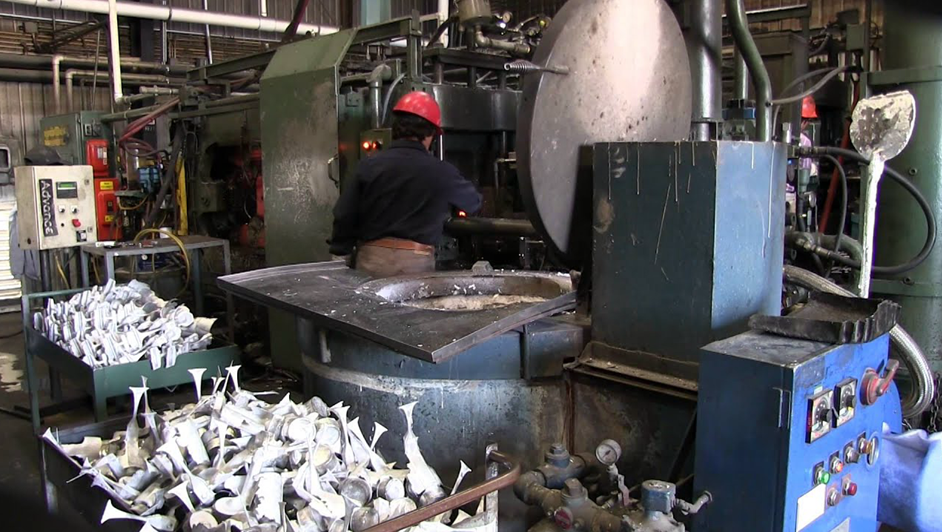Introduction
Die casting is a widely used manufacturing process that involves injecting molten metal into a mold cavity to create complex shapes with high accuracy and repeatability. The quality of the die casting mold plays a crucial role in determining the success of this process. This article explores the art of precision engineering and the key factors involved in creating the perfect die casting mold.
Design Considerations
The first step in creating a perfect die casting mold is to carefully consider the design. The mold should be designed to accommodate the desired shape and size of the final product, while also considering factors such as parting lines, draft angles, and undercuts. A well-designed mold ensures that the molten metal flows smoothly and solidifies uniformly, resulting in a high-quality finished product.
Material Selection
Choosing the right material for the die casting mold is essential for achieving precision and durability. The mold material should have high heat resistance, excellent thermal conductivity, and good dimensional stability. Commonly used mold materials include steel, aluminum, and copper alloys. The selection of the mold material depends on factors such as the type of metal being cast, expected production volume, and cost considerations.
Machining Techniques
Precision machining is a critical aspect of creating the perfect die casting mold. Advanced machining techniques such as computer numerical control (CNC) milling and electrical discharge machining (EDM) allow for the precise shaping of the mold cavity. CNC milling uses computer-controlled machines to remove material, while EDM employs electrical sparks to erode the mold material, resulting in intricate details and high surface finish.
Səthi müalicə
Surface treatment of the die casting mold is essential to enhance its durability and improve the release of the casted parts. Proper surface treatment reduces friction and prevents sticking, leading to smoother ejection of the finished product. Common surface treatments include polishing, plating, and coating. Polishing removes imperfections and creates a smooth surface, while plating and coating provide additional protection against corrosion and wear.
Temperature Control
Effective temperature control is crucial in die casting to ensure consistent quality and prevent defects such as porosity and shrinkage. The die casting mold should be equipped with cooling channels to regulate the temperature during the casting process. Proper cooling ensures that the molten metal solidifies uniformly, preventing warping or distortion of the final product. Simulation software can be used to optimize the positioning and design of cooling channels for maximum efficiency.
Mold Maintenance
Regular maintenance of the die casting mold is vital to ensure its longevity and consistent performance. Mold maintenance includes cleaning, lubrication, and inspection for any signs of wear or damage. Cleaning removes any residual metal or debris from the mold cavity, while lubrication reduces friction and extends the mold\’s lifespan. Periodic inspections allow for early detection of potential issues and timely repairs or replacements, minimizing downtime and ensuring continuous production.

Keyfiyyətə nəzarət
Achieving the perfect die casting mold requires a strong focus on quality control throughout the manufacturing process. Advanced inspection techniques such as coordinate measuring machines (CMM) and non-destructive testing (NDT) ensure that the mold meets the desired specifications. These techniques help identify any dimensional deviations, surface defects, or structural weaknesses that could affect the final product\’s quality. Implementing a robust quality control system guarantees consistent production of high-quality die casted parts.
Conclusion
Creating the perfect die casting mold is a meticulous process that requires precision engineering and attention to detail. By carefully considering design, selecting appropriate materials, employing advanced machining techniques, implementing effective temperature control, maintaining the mold, and implementing quality control measures, manufacturers can produce high-quality die casted parts consistently. Mastering the art of precision engineering in die casting molds is essential for achieving success in the highly competitive manufacturing industry.
-

- Dökmə maqnezium hissələri noutbuk korpusunun qapağı D
-

- 2022 Topdan Satış İsti Satılan Velosiped Hissələri Maqnezium Alaşımlı Uşaq Velosipedi Pedalsız Balans Velosipedi Uşaqlar üçün Çox Rənglər Mövcuddur
-

- Elektron velosiped üçün maqnezium ərintisi tökmə hissələri və komponentləri
-

- Magnesium alloy die-casting LED display frame
-

- Maqnezium ərintisi tökmə hissələri velosiped çərçivəsi CNC emal və səthi bitirmə
-

- Maqnezium ərintisi tökmə elektrik avtomobili, ortada quraşdırılmış motor korpusu

 0086-750-5616188
0086-750-5616188 +86 13392089688
+86 13392089688 sales@zhongmei-tech.com
sales@zhongmei-tech.com







